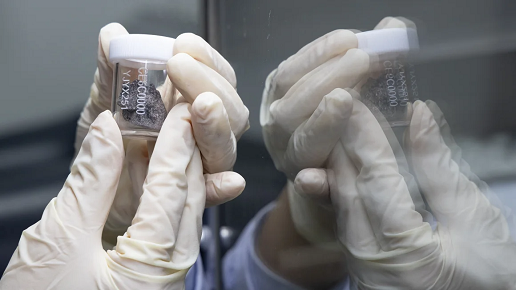As the pandemic has continued to subside and the situation is under control in Taiwan, Central Epidemic Command Center (CECC) announced that migrant workers are allowed to enter Taiwan from November 11. The first batch will be opened for Indonesian migrant workers.
What epidemic prevention measures must be followed for migrant workers entering Taiwan? 【Taiwan Immigrants' Global News Network】brings readers to look through the main points.
1115.jpeg)
Migrant workers must attach documents of the epidemic prevention plan verified by the home country’s authority and send them to Taiwan’s embassies and representative offices abroad. (Photo / Retrieved from the Pixabay)
Preparatory measures before immigration:
Migrant workers must attach documents of the epidemic prevention plan verified by the home country’s authority and send them to Taiwan’s embassies and representative offices abroad. When applying for a work visa to Taiwan, individuals must cooperate with the following epidemic prevention measures:
- Three days before entering the training center, individuals should go to a designated agency approved by the CECC for a PCR test, and the test result must be negative.
- Before entering Taiwan, it is best for migrant workers to be fully vaccinated with the COVID-19 vaccines included in the World Health Organization (WHO) emergency use list, or the COVID-19 vaccines authorized by the Ministry of Health and Welfare for emergency use.
- Migrant workers should adopt the 7-day self-management of health before boarding and perform a PCR test again 72 hours before boarding and entering Taiwan. The test result must be negative.
Read More: Avoid crowd during CNY! MOE: Foreign students asked to enter Taiwan before December 15
1115.jpg)
Migrant workers must adopt 14+7 after entering Taiwan, and they do not need to bear any costs. (Photo / Retrieved from the Pixabay)
Epidemic prevention measures for migrant workers after entering Taiwan:
Migrant workers must take a PCR test, and then proceed to undergo a 14-day collective quarantine and 7-day self-management of health after entering Taiwan.
Before the end of the 14-day quarantine, individuals need to have another PCR test again, and follow the 7-day self-management of health and continue to live in the collective quarantine venues. While having the self-management of health, one must go through a rapid test and follow the entry and exit regulations of the collective quarantine venues.
In addition, migrant workers are theoretically not allowed to go out during the period of self-management of health. They can only go out for medical treatment or emergency situations. Contact tracing QR code scanning is adopted, and a specialized person must be responsible for picking up and accompanying them throughout the process.
1115.jpg)
Migrant workers do not have to bear quarantine fees or insurance costs. (Photo / Retrieved from the Pixabay)
Migrant workers do not need to pay for quarantine or insurance fees:
During the period of 14-day collective quarantine and 7-day self-management of health, the relevant quarantine expenses, transportation expenses and PCR test expenses will be borne by the employer or the government, and migrant workers will not have to bear any costs.

1115.jpg)





